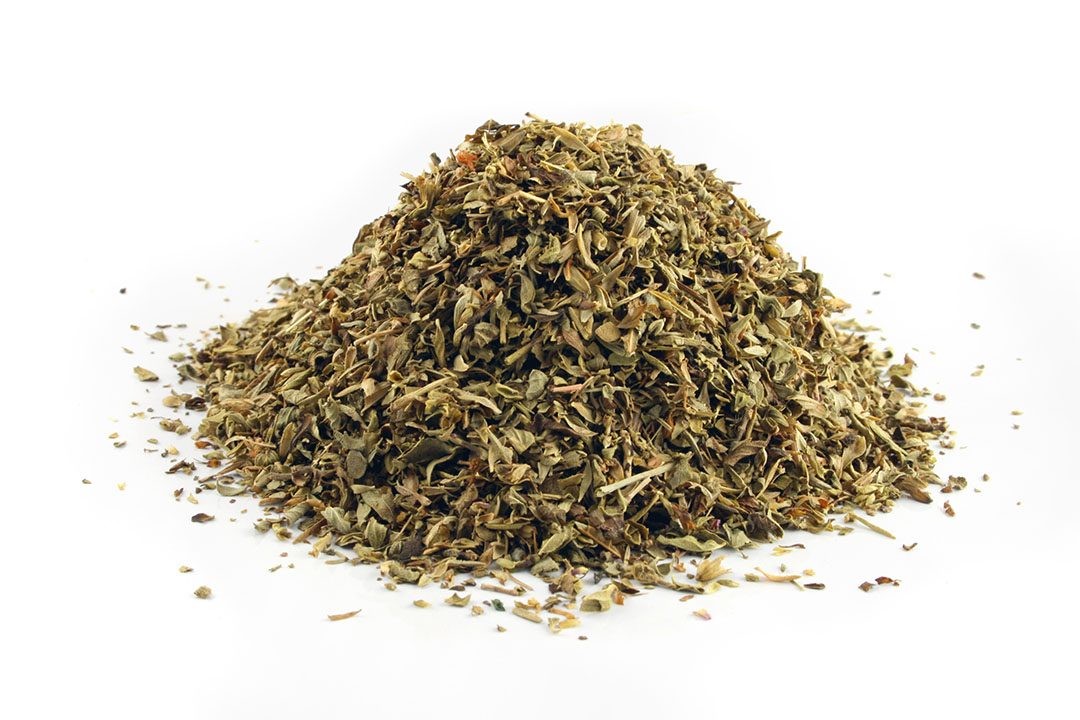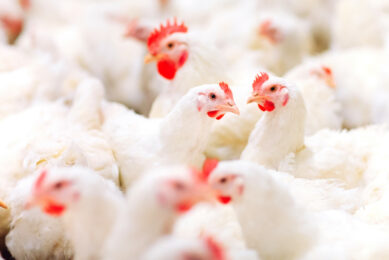Gut disorders? Plants to the rescue!

How to fight bacteria related gut disorders in farm animals in the post-antibiotic era? Using phytogenics that interfere with the bacterial communication system is one of the solutions to do so.
You might have heard that bacteria communicate with each other using chemical words – their signalling molecules. Thereby, they use specific molecules as a language among the same species but can also communicate with other bacteria or even their hosts by release or recognition of different molecules, like the use of different languages.
Reducing the virulence of bacterial pathogens
An important set of these ‘languages’ is called quorum sensing, which is used by bacteria to evaluate microbial populations and their conditions in their surroundings. According to the gathered information, they adapt their behaviour. This is essential for the optimal use of available resources, as individual bacteria might need to behave differently compared to being part of a group of the same kind. Besides this, many pathogenic bacteria use quorum sensing to switch from non-virulent to virulent. For example, it is used by enterotoxigenic E. coli (ETEC) to regulate their toxin production. Understanding such behaviour is therefore of practical importance, as ETEC strains are one of the most important causes of post-weaning diarrhoea in piglets. Active substances in phytogenic feed additives (PFAs) are now used to interfere with bacterial quorum sensing to reduce the virulence of bacterial pathogens like ETEC. As a result, the animals’ immune defences against bacterial infections are supported. This turns out to be an important pillar in fighting bacteria related gut disorders in farm animals in the post-antibiotic era.
Synergistic effects of phytogenic actives protect the gut
Ideally, animals will not encounter disease challenges. However, in practical conditions, they must deal with a wide range of different factors affecting their health status. PFAs are derived from plants and include herbs, spices, and extracts, offering a possibility to support animals in health challenging conditions. By carefully choosing appropriate combinations, they have a potential to exert synergistic effects by employing different modes of action. This is utilised in recent product development by combining different essential oils, flavonoids, and mucilages to support the piglet’s gut in its most stressful life phase – the weaning period. During the weaning period, the piglets’ digestive system and immune competence are subject to massive changes, leading to the vulnerability of the animals’ health. A brief introduction is given on some modes of action exerted by PFAs to help to protect the piglet and its gut during this time.
Antioxidative and anti-inflammatory mode of action
In addition to their quorum sensing inhibition capabilities, PFAs can support the intestinal integrity through their antioxidant properties. As the intestinal epithelium is only formed by a thin layer of epithelial cells, it is extremely vulnerable. A disruption of intestinal integrity leads to a “leaky gut,” which is determined by an increased permeability for food antigens and/or pathogens, thus burdening the immune system and reducing performance. The antioxidative activity of PFAs depends on different molecular structures and acts in 2 different ways: either directly by capturing reactive oxygen species (ROS), or indirectly by stimulating the production of the animals own antioxidative enzymes. For example, superoxidase dismutase or glutathione peroxidase are 2 vital antioxidant enzymes that inactivate ROS. For both, it was shown, that certain PFAs can stimulate their production. As an excess of ROS leads to cell damage primarily to the intestinal epithelia, scavenging of those reactive molecules leads to fewer inflammations of the intestines, the increased integrity of the epithelial cell wall and thus improved performance. In summary we can therefore say that active substances of PFAs work together to support the animals’ guts. Especially, the combination of specific essential oils, flavonoids, and mucilages offer benefits during the critical phase of weaning in the life of piglets.
Lessons learned
- Phytogenic feed additives derived from plants, including herbs, spices, and extracts, show synergistic effects if formulated properly
- Combinations of essential oils, flavonoids and mucilages can protect the gut of weaned piglets
- Phytogenic compounds are utilised to reduce the pathogenicity of certain intestinal pathogens via quorum sensing inhibition
- Anti-oxidative and anti-inflammatory effects support the functionality of the gut in post-weaning piglets
- Mucilages develop a thin layer on the intestinal mucous surface to prevent the attachment of intestinal pathogens, such as enterotoxigenic E. coli.











